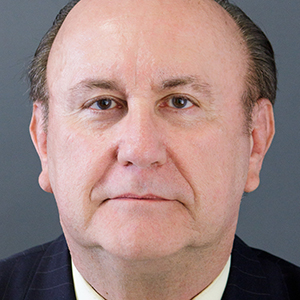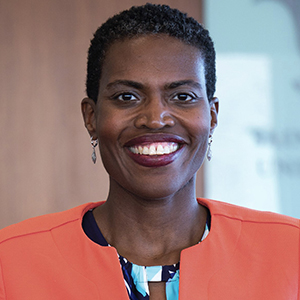AALS sections provide opportunities for law school faculty and staff to connect on issues of shared interest. Each of the associations 104 sections is focused on a different academic discipline, affinity group, or administrative area. For a full list of sections and information on how to join, please visit www.aals.org/sections.
As part of the ongoing “Spotlight on Sections” series, AALS sat down with the leadership of the Section on Law, Medicine, and Health Care for a Q&A.
The Section on Law, Medicine and Health Care promotes the communication of ideas, interests and activities among members and makes recommendations to the Association on matters concerning law, medicine and health care.
Chair: Roy G. Spece, Jr., The University of Arizona James E. Rogers College of Law
Chair-Elect: Ruqaiijah A. Yearby, Saint Louis University School of Law


Ruqaiijah Yearby: Our members are diverse in the sense that they focus on many different areas including: bio-tech work, health care as it relates to disability or race discrimination, poverty law, and public health law. Many of our members are women. Also, many of us have been teaching for 10 or more years.
Roy Spece: You can see our diversity in the programs we’re planning for the upcoming 2020 Annual Meeting. We have a joint program with the Section on Poverty Law and we have co-sponsored programs with sections that cover law and sports, torts and compensation systems, evidence, and biolaw. Health law and law and medicine overlap with so many different areas.
RY: I’m particularly looking forward to our program with the Section on Poverty Law because we’ve not only worked to bring in great speakers on issues around social determinants of health, but [we’ll also] talk about teaching. I think that’s important—sometimes we focus on the scholarly side more than how we can support students to learn and become good lawyers in these areas. I’m also particularly looking forward to our program with the Section on Biolaw focusing on Biological Innovation because it’s becoming a significant part of law and technology.
RS: From my personal perspective, my work is the intersection of constitutional law and bioethics. I had the first casebook in bioethics and law (with Michael Shapiro), and it covered all the areas of bioethics, e.g., behavior control, death control, genetic control, reproductive control, and human enhancement. I’m currently interested in the implications of advances in neuroscience, and I’m working with a neuroscientist professor at our medical school on a paper looking into whether there is a First Amendment protection of “thoughts.” There have been several articles on this, but nobody has gotten deep into the question of “what are thoughts?” This neuroscientist says [a thought is] just an energy exchange with communication, for which you don’t need a human, a body, or a mind. Neuroscience is one field that’s really exploding, and that’s why I brought him in. I’m learning about new brain stimulation techniques, both external and implanted, that are used for various purposes on individuals and groups. He says you could beam information from satellites to affect the minds of people who are down on the ground—not just individuals, but also groups. It’s like science fiction.
RY: Artificial intelligence and how AI will impact the field is another topic. Additionally, I think access to health care is important and how we’re going to support people being and staying healthy. Medicare for All is in the news every day, and to me that’s the first step to a discussion of whether we are going to provide some kind of health insurance that will cover all or a wide range of people. I think many issues will continue to be raised in the course of this election and beyond, because you can’t expect people to be healthy without access to healthcare.
RS: There seems to be more focus on the issues Ruqaiijah outlined. I’m learning, too, because traditionally bioethics as a discipline has been criticized from both within and without for focusing too much on individual rights and autonomy as opposed to looking at social goods such as access to health care. I’m learning more about that because it’s maddening for me to watch these debates and the current dialogue. I think the focus within bioethics has expanded, at least within the last several months.
RY: We’re no longer necessarily having conversations about costs versus benefits. Right now, it’s more of a focus on whose rights are supreme. It seems we’re moving more and more towards limiting access to health care based on religious rights. Furthermore, instead of focusing on increasing access to health care, we subsidize advances in science because we believe this will lower costs.
RY: People are focusing on the overlap of legal areas, such as health law, criminal law, employment law and poverty law. Increasingly, we’re seeing people who teach health law focus not only on what we traditionally think about in terms of bioethics, but also teaching about health care finance or health care regulation and discussing how it impacts people’s lives. We see a lot of people moving towards training for medical and legal partnerships. However, there is still a need for interprofessional training and the development of working relationships with other professionals (social workers, physicians, and public health professionals) to understand how other factors impact law and your client’s health.
RS: At our school, we have a Bachelor of Arts in law for undergraduates and I teach a survey course in that program which combines the main areas of health law as it’s often framed in public health, bioethics, financing, and liability. There’s a lot of interest among the undergraduates, and even if they don’t go into law, this will be another intelligent group who can add to the discussion.
RY: We are current working on partnering with the Journal of Legal Medicine to provide an opportunity for the speakers chosen for our panels to publish. I think the biggest thing that we’ve done for the last few years is host a works in progress session for junior scholars, to give them an opportunity to present and get feedback on their work. We assign experienced readers to give feedback to each of the authors, but other members also read the work and give their feedback.
We also have a service award that is now focused on junior faculty who have been teaching for 10 years or less. Hopefully, this can be used as an accolade noted as part of their tenure progress.
RS: My school is fairly small, so there was a time when I alone was the law and medicine program. Then we brought in Christopher Robinson, now our dean for innovation and research, who has enriched the curriculum and teaches a lab where people can learn how to do empirical work. That’s a major advancement. The undergraduate specialty course I think is another advancement. Some larger schools, like the University of Houston Law Center, have about 40 different courses—there’s a lot that can be done, but you have to have the resources.
RY: I would like to see more interdisciplinary work with other groups outside of AALS, such as the ABA section on Health Law. As Roy said earlier, we’re discussing science technology more and more. I would like to see that better integrated in the health law curriculum—in terms of how it changes health law practice, but also how it changes liability issues and how it will impact people’s lives overall. Here at SLU, we’re working across disciplines with psychology, the college of public health and social justice, and communication to talk about what that will look like in terms of people’s work and their ability to survive. How can we, or how can science technology, address other structural barriers to make that a reality?
RS: I would like to see the section continue its interdisciplinary programs and programs to help younger people advance.
RY: I would like to see our section get more involved with policy and the lawmaking process, whether it’s on the state or federal level, by submitting comments on regulations and proposed legislation. Many members are already doing research that supports lawmaking, so I would like to see the section as a whole do more of that. I want to continue the support of junior faculty but also learn from them, to focus on things that we need to be doing differently for the section.
I would love to partner with other groups that are doing health law, like the American Health Lawyers Association and the American Society of Law, Medicine and Ethics.